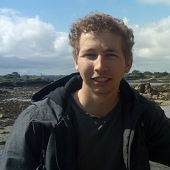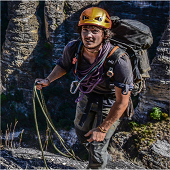Home > Our Camps > USA : Into the Great Lakes
To sign up
Add to wishlist
Introduction
An immersive summer camp related to the water of the extraordinary Great Lakes region, one of the most unique water basins in the world!
Have the chance to improve your survival skills and learn what it takes to treat your own water! We will also focus on the access to water: what it means to have clean, potable water, how humans and nature filter water, and how humans have affected water quality.
The camp will be conducted along the shores of Lake Michigan and Lake Superior where we will spend two weeks camping and learning. This extremely aqueous landscape offers an amazing outdoor classroom with many programs for water conservancy learning!
During the evening, we will also learn how to make a good fire, safe and efficient. Different survival skills will be explored as well (knots, trekking, etc.).
The stay
Stay level 2 to 4:
This trip is part of the Water Watch program
You can see the latest updates by following us on our web site and on Facebook
The trip
The trip aims to gather an international group of teenagers to combine science Science La science est désormais l’affaire de tous. Découvrez la science d’une manière ludique et active. Nous vous proposons d’en découvrir plus sur nos expéditions à la voile, découverte du plancton. , nature discovery and culture experiences for two weeks. It will be led by two educators who speak English and French. One vehicle will allow us to bring the group to the different locations and carry all the materials.
This stay is linked to the research program Research Program Collaborate with scientific organizations. Actively take part in participative science research programs. All this is possible with our plankton discovery sailing expedition. “Water Watch”. This program aims to study water quality and ecosystems. It also aims to develop means of identifying problems and proposing solutions using only the resources available on site, operating on the principle of efficiency.
The trip will start in the impressive city of Chicago. The students will learn about the history of Chicago’s development and how urbanization has affected the surrounding waterways. We will then travel to the less densely populated states of Michigan and Wisconsin to gather samples of water to determine the quality and meet the people involved in water conservancy programs. Within the beautiful state of Michigan is the National Lakeshore called Pictured Rocks where we will spend a few days of the camp. Pictured Rocks is a real highlight of the trip. We can explore a wonderful place of wilderness and the use the things the students learned throughout the trip in a hands-on environment.
Group life
The trip aims to encourage and teach self-sufficiency. The students will learn to live as a community and be autonomous and responsible for their own possessions (tent, camping equipment, clothing). It is a group effort and a great skill to have to be able to pull together for the good of the whole group.
We know from experience that an expedition of this type is unforgettable. The teenagers or young adults that we supervise will take away experiences of living in a group in new locations with fellow students they might’ve just met. .
Over the course of these stays, we like to work on self-reliance : self-reliance on the systems we set up during our research and also reliance on each participant individually and within the group.
The activities and the work that we carry out, as well as life in the camp, gives each participant the experience of helping one another, creating team spirit, and the responsibility of building a self-sufficient group, all while being pushed outside their comfort zones.
Throughout the camp, the instructors will be attentive to everyone while also trying to develop the student’s abilities and skills.
More information
The instructors wil pick up all participants at O’Hare International Airport (ORD),the international airport in Chicago, as soon as they arrive at the International Arrivals area. The instructors will accompany all participants as far as the security checks on their departure. Participants are often on the same flights as each other.
The research project
The goal of the trip is to know more about the Great Lakes region and asses the water quality at different locations.
How does the hydrological cycle work ? What are the current issues and challenges?
Firstly, we will study how Chicago’s river has changed and what are the impact on human and the surrounding nature. Diving deeper into the roots of the Chicago River will allow us to understand what the impacts of human activities are and why does it matter, not only in Chicago, but around the world.
After Chicago, the camp will continue through Wisconsin along Lake Michigan to Marquette, Michigan where the students will meet with locals to discuss water quality issues and take samples.
We will go to less densely populated area in Michigan to gather some samplings about water quality and meet the people involved in water conservancy program. The trip into Pictured rocks national park is a real highlight as we can discover a wonderful place of wilderness and use the learnings from the activities
Experiences
We will conduct several experiments to test the water quality such as pH parameter or dissolved oxygen into water.
The field work will allow the participant to get to recognize aquatic life and good ecological shape of a river.
Concepts Learned during the Camp
English - Survival skills - Fire control - Water quality - Using a knife - Scientific journalism - Ecology - Environmental protection - North American culture - Autonomy - Creation of autonomous systems - Immersion in nature - Supporting research structures - Group Life
Equipment Used
Lenses - Thermometers - Cameras - Computers - Rocket-stove - Knives - Test tubes, Magnifiers - Microscopes - Miscellaneous tools
The location
The trip takes place in the heart of the Great Lakes (between Lake Michigan and Lake Superior), close to the border between the United States and Canada. We will also explore the capital of Illinois, the city of Chicago.
Our base camp will be located in the city of Marquette, in Michigan’s Upper Peninsula along the shores of Michigan’s northernmost Great Lake, Lake Superior.
We will hike to the centre of huge forests, making it possible to discover the great diversity of local fauna and flora. Two to three days of full immersion in self-sufficiency will enable us to meet a multitude of wild animals!
We will also share the experience of living near one of the largest freshwater reservoirs in the world. It is great to swim in! The volume of water contained in Lake Superior alone can cover the whole of North America with one foot of water (1 foot = 30 cm).
Day to day proceedings
Day to Day Proceedings:
The group will follow a road trip which include at least the following destinations:
1- Chicago, Illinois
2 – Kohler-Andrae State Park, Wisconsin
3 – Marquette, Michigan
4 – Pictured Rocks National Lakeshore
We will drive around Lake Michigan to realize how huge this natural resource is.
Every day, the group will go through all the daily life tasks of community living such as cooking, dish washing, and tidying communal spaces. We will also have different activities such as visits, science learning, hiking, meetings, games and survival skills activities.
The international group will also take the time to talk about cultural differences.
The team
Guillaume LORIMIER OSI scientific supervisor for the Water Watch program
, Scientific Educator, Hydraulic Engineer
Involved in the trips “Into the Great Lakes” and “Into the Canadian Wilderness”
Blandine CAQUET Supervisor of WATER WATCH program
Doctor in forest biology
Scientifique supervisor at “La Vigie de l’eau” in Vittel, France
Supervisor of WATER WATCH program (which includes International Vittel Water Science Camp, International Lausanne Water Science Camp, Into the Great Lakes & Into the Canadian wilderness).
Benoît Sappe OSI coordinator for North America
Wilderness Guide
Supervisor of several research programs at OSI for Canada/ Chili/ London/ USA
Sponsors
Madelyn EK – États-Unis
Member of Superior Watershed Partnership
Environmental Scientist, Adventurer, Lover of Learning
Bachelor of Science in Environmental Science with a concentration in Renewable Energy Technologies and a minor in Sustainability
Speaker: “Nine lives of a cigaret butt”
Publication in ABC10
Publication in The Mining JournalCurrent discussions with:
Superior Watershed Partnership
AdventurescientitsLa vigie de l’eau (Vittel, FRANCE)
Accomodation
Accommodation:
The group will sleep in shared tents during the trip. They mostly stay in campgrounds in order to have access to basic facilities (shower, toilets, etc.); however, the group will experience backcountry camping for a few nights as well. The goal is to go deeper into autonomy so we will be camping in a National Park a minimum of one night.
Reviews
Day to Day Schedule
Day 1: Arrival of participants. We set up our tents next to Chicago campsite.
Day 2: Visit of Chicago.
Day 3: Drive to Kohla Andrea State Park. Exploration of the natural reserve.
Day 4: Drive to Marquette. Discovery of the area.
Day 5: Hiking. Research and experiments on drinking water.
Day 6: Activities with Superior Watership Program(SWP). Research and experiments on drinking water.
Day 7: Hiking in full immersion in the forest.
Day 8: Hiking in full immersion in the forest.
Day 9: Research and experiments on drinking water.
Day 10: Activities with SWP. Preparation of the retransmission.
Day 11: Preparation of the retransmission.
Day 12: Presentation of the research conducted. Start of the drive back to Chicago.
Day 13: Drive back around Lake Superior.
Day 14: Departure.
Take with you
The essentials
Personal Documents:
• Biometric passport
• Photocopy of insurance
• Photocopy of important documents (passport, airline tickets, etc.)
• All electronic tickets for the trip.
• Necessary authorisation documents for minors.
• ESTA form.
The backpack
Personal camping equipment marked with the name (initials) of the person to put in a backpack:
• 1 good sleeping bag (thickness 0 to 5 ° C)
• Very good hiking shoes (supportive and solid sole - trekking or walking)
• 1 camping mattress for one person (self-inflating mattress)
• 1 cushion (self-inflating/optional)
• Backpack 65 liters or suitcase (not more than 20 kg otherwise there will be a surcharge at the airport)
• Small backpack (30 to 40 liters) for a daily activities
• Multifunctional knife + fork + spoon
• 1 bottle (1 liter) + bowl and glass plate
• 1 lunch box (to take for picnics)
• 1 headlamp + spare batteries (1 set)
• Earplugs
• 1 something to cover your eyes.
Clothing suitable for the expeditions (fast drying/suitable for sports), marked with the name (initials) of the person (there is the possibility of washing items at the campsite):
• 1 pair of sunglasses
• 1 pair of flip-flops or crocs (for showers)
• 1 or 2 plastic bags (to put dirty or wet stuff in)
• 5 pairs of socks
• 7 briefs (underwear)
• 1 waterproof long poncho
• 1 towel (e.g. fleece)
• 5 T-shirts (including 2 long-sleeved)
• 1 hot turtleneck
• 1 pajama
• 1 fleece
• 1 warm vest
• 1 K-way style windbreaker
• 2 lightweight hiking style cotton pants (no jeans, something that dries quickly)
• 1 shorts
• 1 swimsuit + small lightweight towel
• 1 hat or cap
• 1 silk scarf or light scarf
Toiletry bag:
• Toothbrush
• Toothpaste
• Sunscreen Factor 50
• Moisturizer
• Washcloth
• Natural soap
• Shampoo
• Any necessary female sanitary products
• Hydro-alcoholic gel
Small personal pharmacy:
• Dressings
• Tweezers
• Medical treatment currently in use
• Prescriptions if needed
• Paracetamol
• Etc ...
Lists for Science Journalism
Personal Material of a Science Journalist:
• 1 kit filled with: pens and colored pencils, pencil, eraser, scissors, small ruler
• 1 rigid notebook that will be your TRAVEL BOOK
And if you have one (not compulsory):
• 1 digital camera + card + battery with charger
• A small computer
• 1 USB stick (storage)
• 1 magnifying glass + compass
• 1 pocket game or activity to discover (light-small)
• 1 book
















